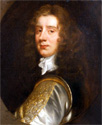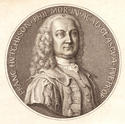Learning and Beliefs
By Innes Kennedy
 With the Protestant Reformation in Scotland came a radical commitment to education, guaranteed by statute. This commitment had its European origins earlier in the century at the University of Paris, where Scots like John Mair were already famous teachers. A realisation set in that the Word of God was being constantly mangled by inept translations of the Bible. This set off the commitment to what is sometimes called "Evangelical Humanism" - a commitment to accurate scriptural interpretation, clarity of expression and excellence in Hebrew, Greek and Latin.
With the Protestant Reformation in Scotland came a radical commitment to education, guaranteed by statute. This commitment had its European origins earlier in the century at the University of Paris, where Scots like John Mair were already famous teachers. A realisation set in that the Word of God was being constantly mangled by inept translations of the Bible. This set off the commitment to what is sometimes called "Evangelical Humanism" - a commitment to accurate scriptural interpretation, clarity of expression and excellence in Hebrew, Greek and Latin.
Reformation
 This desire for literacy, in conjunction with the expansion of the availability of printed books in Europe, was sometimes accompanied by a dogmatic literalism in interpreting the Bible that could easily be exploited. Thus, for example, iconoclasts destroyed some great works of medieval Scottish art on the populist pretext that they were forbidden by the Bible. The translation of the Bible itself from Latin into national languages reflected the disintegration of monolithic Roman Catholicism into separate Christian nations, a major effect of the Reformation. It was the Scottish-born James VI and I, who authorised in 1604 the most famous edition in English when he commissioned a large committee to produce it. In the process he made English the language of authority in the British Isles, a decision in line with his programme for ensuring the assimilation of the different parts of the country into a United Kingdom.
This desire for literacy, in conjunction with the expansion of the availability of printed books in Europe, was sometimes accompanied by a dogmatic literalism in interpreting the Bible that could easily be exploited. Thus, for example, iconoclasts destroyed some great works of medieval Scottish art on the populist pretext that they were forbidden by the Bible. The translation of the Bible itself from Latin into national languages reflected the disintegration of monolithic Roman Catholicism into separate Christian nations, a major effect of the Reformation. It was the Scottish-born James VI and I, who authorised in 1604 the most famous edition in English when he commissioned a large committee to produce it. In the process he made English the language of authority in the British Isles, a decision in line with his programme for ensuring the assimilation of the different parts of the country into a United Kingdom.
 The radical Presbyterian leader, Andrew Melville (one of King James' most formidable critics in the test of how true was the king's commitment to Reformed Christianity) was installed as Principal of the University of Glasgow in 1574 when James was still a child. But once in power in England James objected to Melville's democratic ideas about a Godly Protestant nation and to Melville's description of him as "God's silly vassal". Melville argued that there should be no place for bishops in the new system, which James understood as an attack on royal authority. Melville was imprisoned and eventually exiled.
The radical Presbyterian leader, Andrew Melville (one of King James' most formidable critics in the test of how true was the king's commitment to Reformed Christianity) was installed as Principal of the University of Glasgow in 1574 when James was still a child. But once in power in England James objected to Melville's democratic ideas about a Godly Protestant nation and to Melville's description of him as "God's silly vassal". Melville argued that there should be no place for bishops in the new system, which James understood as an attack on royal authority. Melville was imprisoned and eventually exiled.
 Glasgow had its status as a Royal Burgh conferred by James at the request of the protestant Archbishop of Glasgow, John Spottiswood, in 1611. Presbyterians of Melville's faction called people like Spottiswood "dum doggis" - placemen who were given power in exchange for doing the King's bidding in Scotland. As might be expected therefore, Glasgow was in the vanguard of Presbyterian resistance in the Covenanting period after 1638.
Glasgow had its status as a Royal Burgh conferred by James at the request of the protestant Archbishop of Glasgow, John Spottiswood, in 1611. Presbyterians of Melville's faction called people like Spottiswood "dum doggis" - placemen who were given power in exchange for doing the King's bidding in Scotland. As might be expected therefore, Glasgow was in the vanguard of Presbyterian resistance in the Covenanting period after 1638.
Superstition and Witchcraft
 Under James VI and Presbyterian rule alike, education meant something more than John Knox's vision of a school in every parish. It meant "re-education". There was a systematic and often very cruel attack on ordinary folk belief and superstition. Popular customs, such as a peasant's request that a "charm" be lifted from an ailing cow, or other such folk remedies, could very quickly be treated as heresy and culminate in official execution by garrotte or burning. In this way, a great many women in particular were killed as witches in the 17th century by authorities who were often scarcely less superstitious than their victims.
Under James VI and Presbyterian rule alike, education meant something more than John Knox's vision of a school in every parish. It meant "re-education". There was a systematic and often very cruel attack on ordinary folk belief and superstition. Popular customs, such as a peasant's request that a "charm" be lifted from an ailing cow, or other such folk remedies, could very quickly be treated as heresy and culminate in official execution by garrotte or burning. In this way, a great many women in particular were killed as witches in the 17th century by authorities who were often scarcely less superstitious than their victims.
One of the most famous books about the urgent need for this persecution was written by George Sinclair, the Professor of Natural Philosophy at the University of Glasgow from 1654 to 1695. His book was called Satan's Invisible World Discovered (1685). By "discovered" he meant exposed and comprehensively mapped out. The timing if its publication is significant because it was around this time that the suspicion grew that a great many innocent people had indeed been murdered as a result of precisely the kind of fundamentalism evident in Sinclair's work. But Sinclair and others continued to argue that disbelief in the supernatural world was the same as disbelief in God, and therefore, a threat to Protestantism. It was not until 1736 that the Witchcraft Act was repealed.
Enlightenment
The contrast between Sinclair and the kind of professors who succeeded him at Glasgow reveals much about the climate of learning and belief from the 1680s. This was the advent of the age Enlightenment and the transition to modernity, led in particular, by moral philosophy. With the institutional support of the rising power of the earls of Argyll and of the burgeoning mercantile sector, the University of Glasgow's contribution to the Enlightenment was considerable. In the impressive writings of Gershom Carmichael (1672-1729), who was the first professor of moral philosophy following the reorganisation of the University and the creation of specialist professorial chairs, European legal ideas were increasingly introduced into the country and given a specifically Scottish character. This was made easier by Scotland's existing Roman Law heritage and the tradition of Scots receiving legal education in the continent. Interestingly, Carmichael also argued that Jacobite rule in Scotland could never have a scientific basis and so, whatever contemporary Jacobites argued, their cause belonged in the benighted past. Carmichael died long before the 1745 Jacobite rising but his views were typical of the philosophical elites who succeeded him.
Born in the same year that Carmichael began teaching, Francis Hutcheson (1694-1797) was his more famous successor in the chair of moral philosophy, and, variously with Carmichael, George Turnbull and Bishop Berkeley, is often said to be the progenitor of the Scottish Englishtenment. He certainly instigated an important anti-realist strand of it, arguing against David Hume for the existence of a "moral sense" in human nature. His even more famous pupil was the moral philosopher and later founder of that was subsequently called the "Scotch Science" of political economy, Adam Smith. Smith published in 1759 A Theory of Moral Sentiments in which he argued that a moral code in society emerged from the sympathy that human being naturally had with one another. But he also argued that wealth would come from removing as much as possible regulation and control of human beings and giving them the scope to pursue their own self-interest.
Although the University was the focus of these new ideas they percolated through the educated in the community. By the 1770s they were being avidly discussed in the city's flourishing socialising and discussion clubs, like the Literary Society, the Political Economy Society and the Hodge Podge Club.